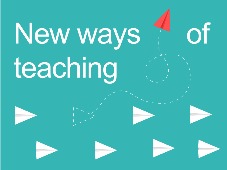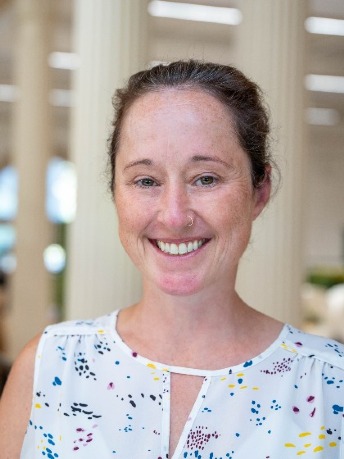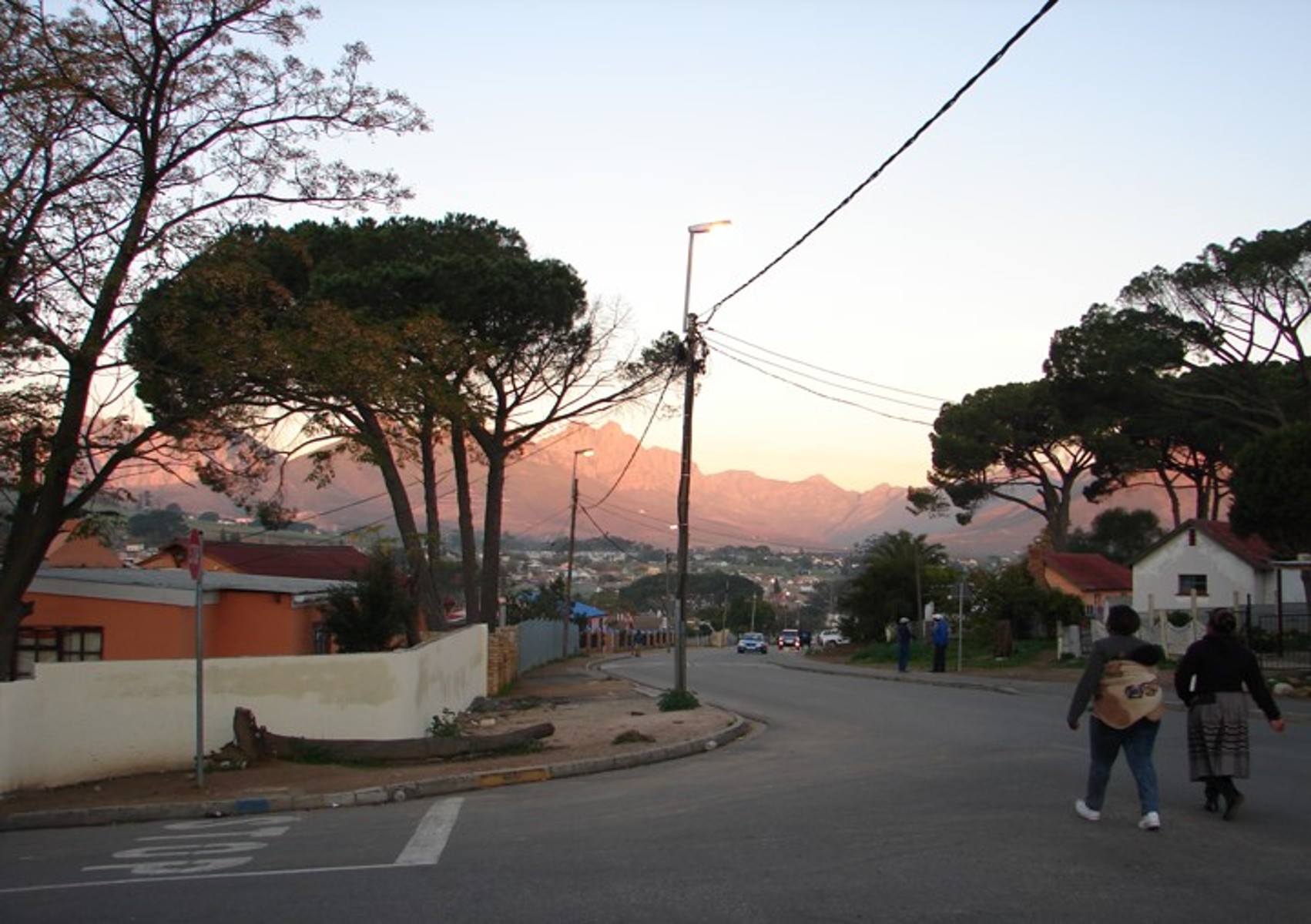Inspired and connected by virtual township tourism

In New Ways of Teaching, professors share their innovative, creative, and effective teaching initiatives. From unusual teaching methods to new technologies—anything is possible. How do these ideas arise and how do they impact students? This month: virtual township tourism in a South African township.
Instead of throwing in the towel during the COVID-19 pandemic, Dr Meghan Muldoon, assistant professor of Sustainable Tourism at Campus Fryslân, made it possible to see something of the world while being stuck at home: a virtual tour through a South African township led by a local resident.

A double purpose
I did part of my PhD research in Kayamandi, South Africa, the township where the tour for our Master’s course unit Tourism, Culture, and Sustainability takes place. I lived there with a family during my studies and maintained some friendships within the community. I knew the community was struggling throughout the pandemic, partly because all tourism activities had ground to a halt. I thought that this would be a good opportunity to generate a bit of income for the community, and a fun activity to engage students’ interest at the beginning of their Master’s degree in Sustainable Tourism and Society.
Township tourism
Township tourism raises so many questions that are at the heart of critical approaches to the study of tourism. What is the role of tourists in impoverished areas? Do they help the community by generating income or do they harm it by exploiting people’s vulnerabilities and fetishizing the urban poor? All these questions made me wonder if virtual tourism might be a possible solution for some of these sticky moral issues surrounding tourism in the Global South.
During the pandemic, I was inspired by seeing other tour guides offering tours to people who were isolating at home, and I decided to join a couple of them. This is what got the ball rolling for the virtual tour in Kayamandi. Funnily enough, the pandemic even kind of facilitated the township tour, because it is due to COVID-19 that all of our classrooms are now equipped with the technology required for online participation.

Fasten your seatbelts
The tour facilitators, Monde Myataza and Anga Bongo, join the class from their office in Kayamandi township, South Africa. During the tour, we visit local businesses, nurseries, youth centres, and schools. The slightly chaotic nature of the tour can be jarring: it often takes time to get the technology set up, the weather doesn’t always cooperate, and this year the guide was nearly hit by a car. It does, however, give the students a real sense of ‘being there’ in the township. After the tour, the students have time to ask questions and interact with Anga and Monde.
It is preceded by an in-class discussion about our expectations of the tour and possible areas of discomfort. We discuss the role of tourism in areas struck by poverty and racial exclusion, and what potential impacts of the tour may include. Invariably, conversations emerge regarding Othering, global mobilities, injustice, exploitation, and colonialism. In closing, we talk about what we felt and experienced during the tour. This step is meant as a critical reflection point for the students to think about which of their expectations were met, and what assumptions were challenged or transformed.
An end to poverty prying
What stood out to our students was the pride that the tour facilitators had in their community, and in the work that they were doing to improve the township. The students felt that the tours empowered the township residents to tell their stories, and that the virtual tour represented a less invasive way to learn about the people and their lives. The students also felt that, through the tour, preconceived negative stereotypes of people living in urban poverty were being challenged. They appreciated the unique opportunity to learn about the community in a way that empowers residents to tell their stories, be heard, show how decisions are made, and show what life is like for the community.
Dismantling our colonial thinking
While an important objective of the township tour is to initiate conversations around encounters with poverty through tourism and the role of virtual technologies in mediating those conversations, the more important and transformative impact is that it encourages students to decolonize their thinking about Global South residents. They often go into the tours expecting to feel a certain kind of sadness for people living in townships, but mostly they come away feeling inspired and connected. Rather than conceiving of them exclusively as victims of historical forces beyond their control, the students come to see people in the Global South as inspiring and as empowered forces for change within their own lives and communities.
Grist for the mill
For me, as a teacher, the virtual township tour achieves a threefold aim of 1) challenging colonized notions of what it means to live in poverty in the Global South, 2) critically engaging with the implications and impacts of tourism in impoverished areas, and 3) exploring the role of VR technology in tourism practice and education. It allows me to not merely ‘tell’ the students about tourism in the Global South but to show them and engage with them and interrogate the beautiful and terrible thing that tourism can be.
I believe that this is a teaching practice that can be replicated in a wide range of classrooms, and I am happy to be the person who can help to create more of these experiences for both the students and the residents of the township.
More information
-
Read other editions of New Ways of Teaching
| Last modified: | 11 November 2024 2.01 p.m. |
More news
-
24 March 2025
UG 28th in World's Most International Universities 2025 rankings
The University of Groningen has been ranked 28th in the World's Most International Universities 2025 by Times Higher Education. With this, the UG leaves behind institutions such as MIT and Harvard. The 28th place marks an increase of five places: in...
-
05 March 2025
Women in Science
The UG celebrates International Women’s Day with a special photo series: Women in Science.
-
16 December 2024
Jouke de Vries: ‘The University will have to be flexible’
2024 was a festive year for the University of Groningen. In this podcast, Jouke de Vries, the chair of the Executive Board, looks back.
